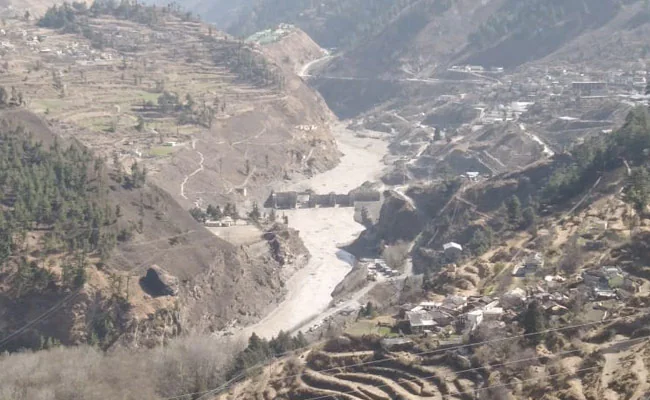

We must not downplay the reckless nature in which religious tourism is being pushed in ecologically sensitive regions of the country

The year began with two different crises for India. While Jains across India were protesting against their holy shrine in Jharkhand being designated as a tourist spot, Uttarakhand’s Joshimath – the gateway to Hemkund Sahib and Badrinath – was sinking due to land subsidence.
Within days of the country-wide protest by Jains, the Jharkhand government stopped all tourist activities at Sammed Shikharji in the Parasnath Hills, where 20 of the 24 Jain Tirthankaras are believed to have attained salvation.
On the other hand, the people of Joshimath have been protesting against NTPC’s 520 MW Tapovan Vishnugad hydropower project which they believe is the cause of land subsidence and the resultant cracks on several hundred houses in the holy city. However, the government has ruled out this correlation. The crisis in Joshimath is being attributed to natural causes and tourism-related construction overdrive.
Joshimath is already built on what is understood to be a weak foundation. Unhindered construction work on the vulnerable spot has created havoc for the locals, who stare at displacement and loss of livelihood. Several hundred residents of Joshimath have had to abandon their houses and move to safer places. They do not know when they can return and if their former life will be restored.
Youngsters who went out of town for their higher education have returned home with the hope of being absorbed in religious tourism-related enterprises. This is also indicative of another problem. The dearth of diverse skilled jobs for youngsters in and around hubs of religious tourism. The already saturated sector has to absorb the economic aspirations of the educated and technologically savvy younger generation even in a small town like Joshimath. This leads to further exploitation of natural resources to satisfy new aspirations.
Joshimath is just the tip of the iceberg. Uttarkashi and Nainital are also at risk of sinking.
It cannot be denied that India is a poor country. Tourism absorbs low-skilled local workforce stopping migration and displacement due to economic reasons. It prevents situations like the one we saw in the first pandemic where migrant workers from Bihar had to walk long stretches to get back home. However, the problem begins when even educated people from metros start to buy land in these places and set up their own businesses demanding a piece of the small pie. The quintessential urban millennial dream of running a cafe, or a B&B in the hills exacerbates the problem.
The government’s thrust on religious tourism is well-intentioned. In a deeply spiritual country like India where people visit holy places during all kinds of developmental milestones in their life – be it a wedding, ‘mundan’, or death, ensuring ease and comfort of travel and stay is a necessity. Pilgrimages are undertaken by people of all ages. Many undertake religious pilgrimages after they have retired. A large number of religious tourists are old people who have problems with mobility. So, the government hits all the right chords when it develops special circuits for tourism.
But we must not downplay the reckless nature in which religious tourism is being pushed in ecologically sensitive regions of the country. It feeds on greed and thrives on the destruction of the environment. When left unchecked, the government’s agenda for environmental protection and preservation goes for a toss, and the whole sanctity of pilgrim spots is also destroyed. Indians cannot perform their religious duties by ignoring the destruction wrecked on Mother nature. If the policies are not framed properly, such reckless religious tourism would strip the very essence of these powerful spiritual places that India’s ascetics and spiritual seekers have traveled to for ontological insights.